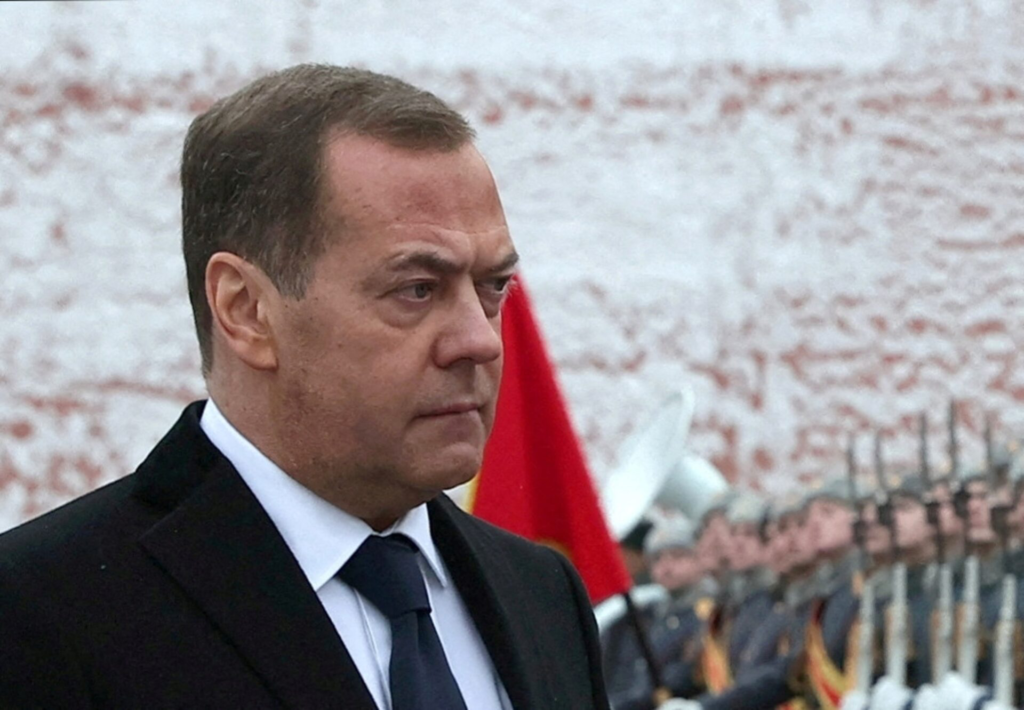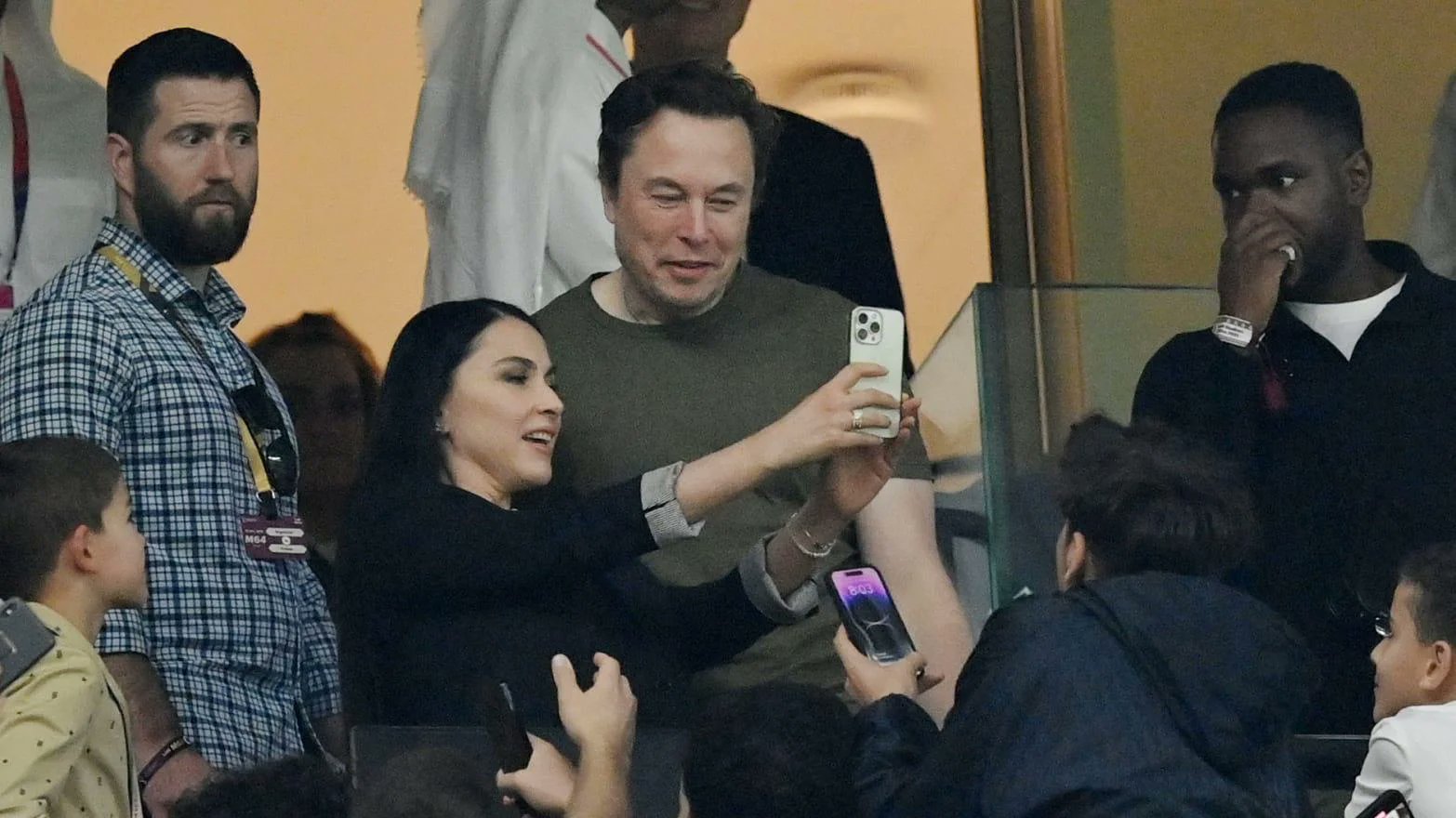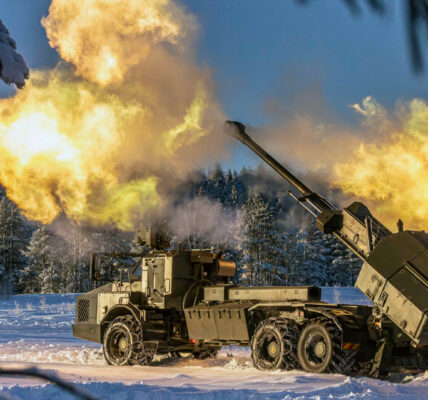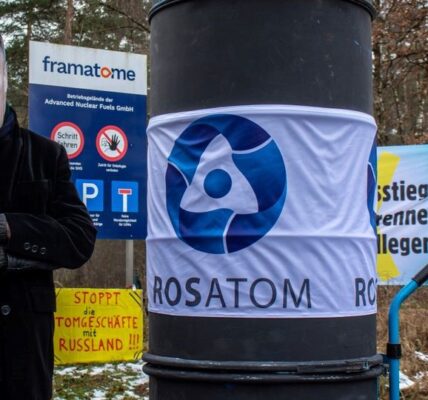Putin vows ‘extremely painful’ retaliation after West agrees $50 billion loan for Ukraine
The Kremlin has vowed to exact an “extremely painful” retaliation after the G7 group of countries agreed to provide Ukraine with a $50bn (USD) loan to help the country in its war with Russia.
The move followed the announcement by President Joe Biden that the US has signed a 10-year bilateral security agreement with Ukraine.

Most of the money would be provided in the form of a loan from the US government that would be backed by windfall profits being earned on roughly $300 billion in immobilised Russian assets. The vast majority of the money is being held in EU nations.
US President Joe Biden emphasised the move as a strong signal to Russia that “we’re not backing down,” while in Moscow, President Vladimir Putin condemned it as “theft” that “would not go unpunished.”
In response to the G7’s decision, Putin issued a severe warning, promising “extremely painful” retaliation. Maria Zakharova, spokesperson for Russia’s foreign ministry, described the G7’s decision as “criminal and cynical,” threatening significant retaliatory measures.

Zakharova said: “We know about the supposedly reached fundamental agreements within the G7 to provide Ukraine with another loan of $50 billion pledged against future revenues from managing Russian assets.
Such a step will not lead the West to anything good. She warned that retaliatory measures would be “extremely painful” for Brussels, adding that European property and money in Russia would be targeted.

Dmitry Medvedev, the former Russian President and chairman of the Russian Security Council, called on Russians to “mobilise” against the West in response to the G7 announcement.
Medvedev urged Russians on Telegram to inflict “maximum harm” on Western societies and infrastructure as payback for the sanctions imposed by the US and its allies.
He said: “We need to [respond]. Not only the authorities, the state, but all our people in general. After all, they—the US and its f****** allies—have declared a war on us without any rules!”
He continued: “Hit them where it hurts. Do damage everywhere, paralyse the operation of their companies and government agencies. Find vulnerabilities in their critical technologies and attack them mercilessly. Literally destroy their energy, industry, transportation, banking and social services. Instill fear of the imminent collapse of all critical infrastructure.”
The former president called for an intensified information war against the West, aiming to blur the lines between reality and fiction.
He said: “Are they screaming about our use of fake news? Let’s turn their lives into a crazy nightmare in which they can’t distinguish wild fiction from the realities of the day, infernal evil from the routine of life.”

Meanwhile, Britain announced further sanctions at the start of the summit aimed at weakening Russia’s war efforts. The sanctions target entities based in China, Israel, Kyrgyzstan, and Turkey, as well as the Russian energy sector aiming to cut off supplies of munitions, machine tools, microelectronics, and logistics to the Russian military. They also target ships transporting military goods from North Korea to Russia.
Britain is focusing on the “shadow fleet” of ships used to bypass G7 sanctions on Russia’s oil and natural gas industry. The UK Foreign Office highlighted the significance of this measure, noting that taxes on oil production accounted for 31 per cent of the Russian government’s revenue last year.
In addition to the G7 loan, Ukraine and Japan signed a 10-year agreement under which
Japanese Prime Minister Kishida Fumio pledged $4.5 billion in aid for this year. This will include the provision of non-lethal equipment, intelligence cooperation, reconstruction support, and medical assistance.
Zelenksy wrote on X: “For Japan, this type of agreement and this level of support is a breakthrough. We see this and thank Japan for its unwavering solidarity with our country and people, as well as for its dedication to protecting life and international law.”

The US also reinforced its commitment to Ukraine by signing a key bilateral security agreement with Ukraine, committing Washington to ten years of military and financial support for Kyiv. President Biden emphasised the unified stance against Russian President Putin, stating, “He cannot wait us out, he cannot divide us.” Zelensky echoed this sentiment, highlighting the “credibility of American support for our Ukrainian independence.”
Following the G7 summit, Zelensky is set to attend a highly anticipated Ukraine peace summit in Switzerland. With participation from around 90 states and organisations, the conference aims to create a pathway to peace, focusing on food security, nuclear safety, and the release of prisoners and deportees. Russia, however, has called the conference pointless without its presence. Meanwhile, China has chosen to boycott the event, promoting its own peace proposal instead.
As the war between Russia and Ukraine continues, the international community’s support for Ukraine, coupled with Russia’s retaliatory threats, underscores the high stakes and complex geopolitical dynamics at play. The G7’s financial and security commitments signal a robust and united stance against Russian aggression, while Moscow’s warnings and aggressive rhetoric highlight the escalating tension and potential for further conflict.



































































































































































































































































































